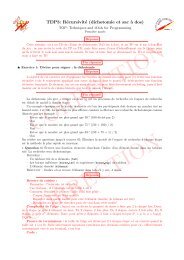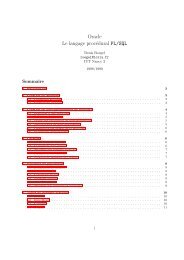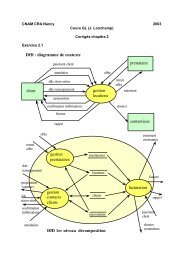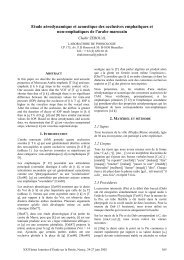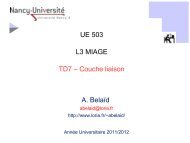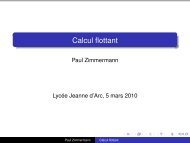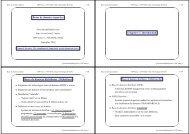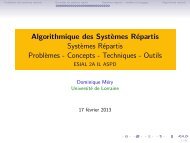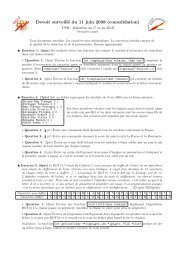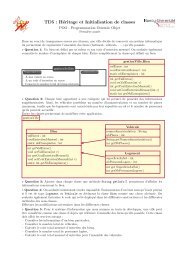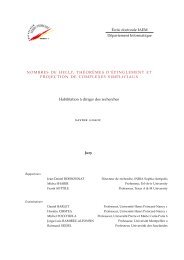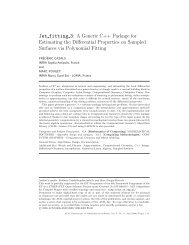Logical Analysis and Verification of Cryptographic Protocols - Loria
Logical Analysis and Verification of Cryptographic Protocols - Loria
Logical Analysis and Verification of Cryptographic Protocols - Loria
Create successful ePaper yourself
Turn your PDF publications into a flip-book with our unique Google optimized e-Paper software.
114 CHAPTER 5. SATURATED DEDUCTION SYSTEMS<br />
Definition 46 (finite variant property) The pair <strong>of</strong> equational theories (H, H ′ ) has the<br />
finite variant property if for every term t, we can effectively compute a finite complete<br />
set <strong>of</strong> H-variants modulo H ′ . Sometimes <strong>and</strong> for simplicity, we will simply say variants<br />
<strong>and</strong> complete set <strong>of</strong> variants when H <strong>and</strong> H ′ are clear from the context.<br />
When R is a H ′ -convergent rewrite system generating H, we have that (R, H ′ )<br />
satisfies the finite variant property if <strong>and</strong> only if (H, H ′ ) satisfies the finite variant<br />
property.<br />
Definition 47 (R, H ′ ) satisfies the finite variant property if for any term t, there is a<br />
finite set <strong>of</strong> variants t1, . . . , tn, effectively computable, such that, for every substitution<br />
σ, there is an index i <strong>and</strong> a substitution θ such that (tσ)↓ H ′ \R<br />
=H ′ tiθ.<br />
In [86], the authors showed that if (R, H ′ ) has the finite variant property, we<br />
may not only compute in advance some instances ti <strong>of</strong> t such that (tσ)↓ is always<br />
an instance modulo H ′ <strong>of</strong> some ti , but actually compute in advance substitutions<br />
θi such that ti = (tθi)↓ is a complete set <strong>of</strong> variants <strong>and</strong> every normalised<br />
substitution can be factorised through θi. This result is summarised by the following<br />
lemma.<br />
Lemma 40 (R, H ′ ) has the finite variant property if <strong>and</strong> only if for any term t, there is<br />
a finite set <strong>of</strong> substitutions Σ(t) such that for any substitution σ, there exists a substitution<br />
θ ∈ Σ(t), <strong>and</strong> a substitution τ verifying (σ)↓ =H ′ θτ <strong>and</strong> (tσ)↓ =H ′ (tθ)↓τ<br />
In [86], S. Delaune <strong>and</strong> H. Comon-Lundh define the boundness property as follows:<br />
Definition 48 (boundedness property) (R, H ′ ) satisfies the boundedness property if<br />
for every term t, there exists an integer n such that for every normalised substitution σ,<br />
the normal form <strong>of</strong> tσ is reachable by a derivation whose length can be bounded by n:<br />
∀t, ∃n, ∀σ, t((σ)↓)<br />
≤n<br />
→H ′ \R (tσ)↓<br />
<strong>and</strong> then, S. Delaune <strong>and</strong> H. Comon-Lundh showed the relationships between<br />
the boundness property <strong>and</strong> the finite variant property by proving the following<br />
theorem.<br />
Theorem 9 (R, H ′ ) satisfies the boundedness property if <strong>and</strong> only if (R, H ′ ) satisfies<br />
the finite variant property.<br />
5.2.2 Equational theories having finite variant property<br />
In [86], S. Delaune <strong>and</strong> H. Comon-Lundh showed that for any equational theory<br />
H generated by a (∅-) convergent rewrite system R, if any R-basic narrowing



